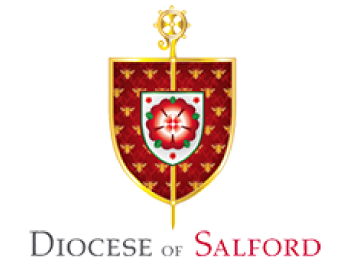Year 2
Welcome to Year 2!

Welcome to Year 2!
Welcome to Year 2
Your teacher is Miss King and your teaching assistant Miss Hibbert.
In Year 2 we learn about lots of amazing and interesting things and become much more independent. We hope to have the opportunity this year to go on lots of trips both locally and further afield and also to be able to welcome visitors into school to further enhance and enrich our learning.
In Autumn term we will be focusing on our phonics and.after Christmas, we will then be working really hard to get ready for our end of Key Stage assessments (SATs) and for moving into Key Stage 2.
In Religion, we learn about new beginnings including about creation. We then learn about the sacrament of Baptism and then about Advent and Christmas. We pray daily together and have a special Liturgy time together in class once a week.
Our PSHE lessons this term will focus on What makes a good friend? and will also cover bullying and personal safety on the internet and other electronic devices.
In English, we further develop our reading and writing skills by improving our phonics skills and using them to read and write words. We also work on our sentence structures, punctuation and word choices, as well as learning to join our handwriting. We read daily to improve our fluency and comprehension and also to enjoy sharing books with one another.
In Maths, we first work on numbers to 100 before moving on to addition and subtraction, money and multiplication and division later in the term.
Our Science for this term starts with the topic of Living things and their habitats. We will be doing lots of outdoor learning to investigate the school grounds to find different habitats and the creatures that live there. In Autumn 2 we will look at how animals have off-spring.
In our first History topic of the year, we find out all about Mary Anning and how she discovered lots of interesting things about dinosaurs.
Observational sketches, portraits and the 3-D models of the artists Alexander Calder and Marc Quinn will be the focus of this term’s art work. While in DT the children will learn about textiles.
Throughout the term, we will develop our computer skills, learning how to word process, search for information and learn all about algorithms. Whilst in music lessons we will be singing, listening to different kinds of music and creating some of our own music; whilst learning musical vocabulary such as timbre and pitch.
Our topics for the rest of the year include, Up, Up and Away – exploring flight explorers, To infinity and beyond- Space and By the Seaside.
This website uses cookies so that we can provide you with the best user experience possible. Cookie information is stored in your browser and performs functions such as recognising you when you return to our website and helping our team to understand which sections of the website you find most interesting and useful.
Strictly Necessary Cookie should be enabled at all times so that we can save your preferences for cookie settings.
If you disable this cookie, we will not be able to save your preferences. This means that every time you visit this website you will need to enable or disable cookies again.
More information about our Cookie Policy